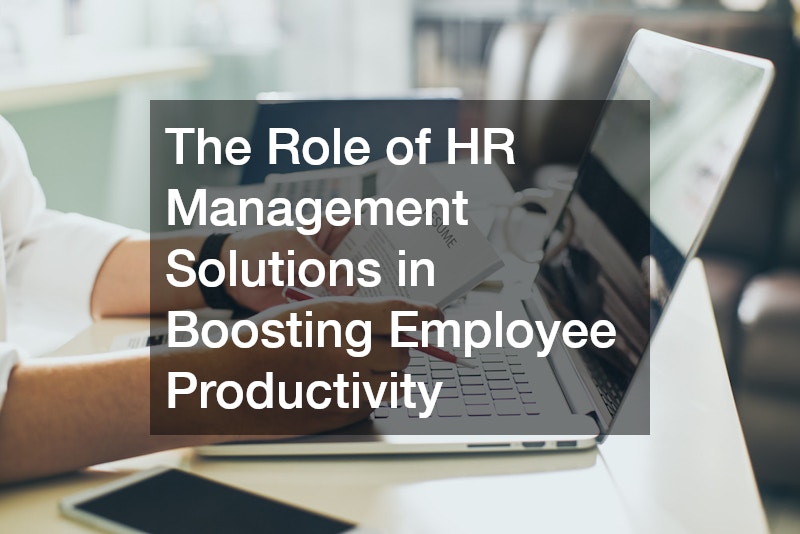
In today’s rapidly changing business environment, small businesses face unique challenges in maintaining employee productivity while fostering growth. Effective human resource (HR) management is crucial for optimizing workforce output. Quality HR management solutions can play a pivotal role in streamlining processes, ensuring compliance, and keeping employees engaged.
The concept of HR management solutions encompasses a range of technologies and strategies designed to improve the efficiency of HR functions. These systems are not just for large enterprises; they are equally beneficial for small businesses looking to maximize their workforce potential.
By implementing the right tools, small businesses can bridge the gap between growth and operational efficiency.
Understanding the integral relationship between productivity and HR management is crucial for any small business owner. The strategic use of modern HR solutions can greatly enhance employee satisfaction and retention. In turn, this fosters a productive workplace environment pivotal for driving long-term success.
Streamlining Administrative Tasks
One of the primary benefits of human resources technology platforms is their ability to streamline administrative tasks. These systems automate routine processes such as payroll, benefits administration, and time tracking, saving valuable time and resources. For small businesses, this means fewer hours spent on paperwork and more time allocated to core business activities, client service, and revenue-generating projects.
Moreover, reducing the load of manual tasks allows HR teams to focus on strategic planning and employee development. This shift not only improves operational efficiency but also enhances the overall productivity of the workforce. By eliminating redundancies, businesses can ensure that all team members are aligned with the company’s goals and objectives while creating a more cohesive work environment.
For example, an automated time tracking system provides accurate, real-time insights into employee attendance and performance. Such data-driven insights are invaluable for small business owners seeking to make informed decisions, optimize resource allocation, and respond quickly to workforce trends. Ultimately, modern HR software empowers businesses to create a more responsive and agile workplace capable of adapting to evolving demands.
Enhancing Employee Engagement
Employee engagement is a critical factor in boosting productivity, and HR management platforms can significantly contribute to this area. These tools facilitate better communication and give employees easy access to relevant information and resources. By fostering a transparent and inclusive environment, employees are more likely to feel valued and engaged in their roles.
Moreover, these platforms often include features that support team collaboration, peer-to-peer recognition, and goal tracking. These elements help build a positive workplace culture where employees are motivated to contribute their best efforts. For small businesses, maintaining a strong company culture is essential for attracting and retaining top talent in competitive markets.
Additionally, these systems often integrate professional development tools, such as training modules, learning management systems, and career progression tracking. When employees have access to ongoing learning opportunities, they are more likely to remain committed to the organization. This reduces turnover and helps maintain a strong, productive team over the long term while reinforcing the employer’s brand.
Supporting Compliance and Risk Management
Small businesses must navigate a complex web of laws and regulations, making compliance and risk management a top priority. Workforce management solutions simplify these challenges by ensuring that businesses stay up to date with legal changes. These systems provide alerts and updates on regulatory requirements, minimizing the risk of costly compliance violations.
With built-in compliance checks, small business owners can rest assured that their HR practices align with industry standards. This safeguard not only protects the company from legal repercussions but also ensures that employee rights and benefits are upheld. Consequently, employees feel a stronger sense of security and trust in their workplace, which further boosts morale.
Furthermore, these systems can help identify potential areas of risk, enabling proactive measures to be taken before issues escalate. This foresight is invaluable in avoiding disruptions to productivity and minimizing financial or reputational damage. By investing in robust people operations technology, small businesses can foster a safe, compliant, and performance-driven environment.
Building a Foundation for Long-Term Success
In conclusion, human resources software solutions are indispensable tools for small businesses aiming to enhance employee productivity. By streamlining administrative tasks, boosting engagement, and supporting compliance, these systems address critical aspects of workforce management. As a result, businesses can focus more on strategic growth initiatives and long-term sustainability.
The advantages of adopting comprehensive HR tools extend beyond operational efficiency. They lay the foundation for a vibrant workplace culture that attracts and retains talent, improves decision-making, and ensures compliance. Ultimately, investing in the right technology is not merely a business expense but a strategic move toward achieving lasting success and a stronger competitive position in the marketplace.
Small businesses that leverage HR management solutions can overcome growth challenges and create an agile, motivated workforce. While the implementation may require an upfront investment, the benefits in terms of productivity and employee satisfaction are significant. As the business landscape continues to evolve, ensuring an effective HR strategy will remain crucial for sustaining competitive advantage.

